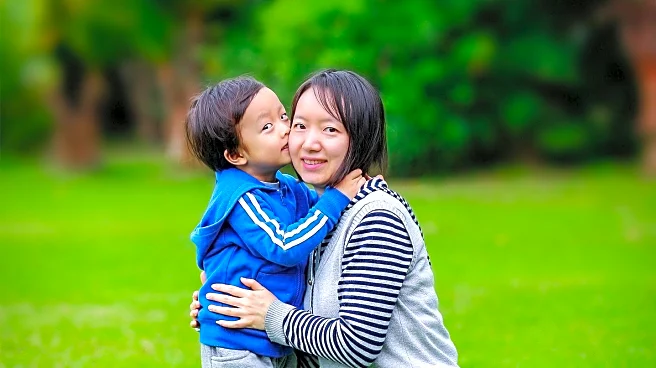What's Happening?
Clinical psychologist Lisa Damour emphasizes the importance of a specific question parents should ask their children: 'Do you want my help or do you just need to vent?' This approach, discussed on the 'Raising
Good Humans' podcast, is designed to foster trust and strengthen the parent-child connection. Damour, known for her work on adolescent psychology, suggests that listening rather than immediately offering solutions can empower children to solve their own problems. Her insights are supported by a 2024 survey indicating that a majority of Gen Zers prefer their parents to listen rather than intervene when they are upset.
Why It's Important?
The approach advocated by Damour is crucial for developing children's confidence and independence. By allowing children to express their feelings and work through their problems, parents can help them build resilience and emotional regulation skills. This method also encourages open communication, which is essential for healthy relationships. The survey results highlight a shift in parenting strategies, where listening and emotional support are prioritized over direct intervention, reflecting broader changes in societal attitudes towards child-rearing.
What's Next?
As more parents adopt this listen-first approach, there may be a broader cultural shift in parenting practices. Educational programs and resources could increasingly focus on teaching parents how to effectively support their children's emotional development. Psychologists and educators might explore further research into the long-term benefits of this approach, potentially influencing public policy on family and child welfare. The conversation around parenting strategies is likely to continue evolving, with an emphasis on fostering independence and emotional intelligence in children.
Beyond the Headlines
Damour's insights into parenting reflect deeper societal changes in how emotional intelligence is valued. As parents become more attuned to their children's emotional needs, there may be broader implications for mental health awareness and support systems. This shift could influence educational curricula, workplace policies, and community programs aimed at promoting emotional well-being. Understanding the cultural dimensions of these changes is essential for developing comprehensive strategies to support families and children.









